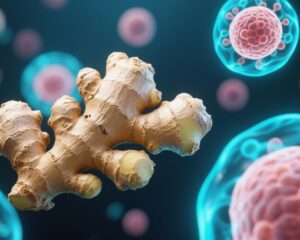Introduction: The Urgent Need to Combat Vascular Aging
Cardiovascular disease remains the leading cause of morbidity and mortality worldwide, particularly among aging populations. As blood vessels age, their structural integrity diminishes — elastic fibers weaken and rupture, and vessel walls thicken and harden through processes such as arteriosclerosis. These changes impair vascular function and contribute significantly to heart attacks, strokes, and other cardiovascular events that claim millions of lives each year. Despite advances in therapies, effective interventions that address vascular aging at the cellular and molecular level are urgently needed.
Discovery of Citrate’s Role in Vascular Health
In an exciting development, a research team led by scientists at Nanchang University has identified citrate — a natural organic acid commonly found in citrus fruits like lemons and oranges — as a promising molecular key to delay vascular aging and associated cardiovascular disorders. Their groundbreaking study, published on September 4, 2025, in the peer-reviewed journal Aging Cell, offers new hope for novel therapeutic strategies targeting age-related vascular decline.
Scientific and Clinical Evidence: What the Data Tell Us
The research team compared blood samples from aged and young mice, noting a significant drop in serum citrate levels with aging. This observation led them to hypothesize that citrate depletion might play a role in vascular aging.
To test this, aged mice were given drinking water containing 1% citrate. Remarkably, these “high-age mice” showed not only more vibrant fur and greater agility but also a restoration of vascular elasticity to levels typically seen in youth. Detailed analyses revealed substantial repair of the elastic fibers within the aorta — the largest artery — indicating structural rejuvenation at the tissue level.
On a molecular scale, the expression of CDKN1A, a well-recognized cellular senescence marker, dropped by 40% in treated mice. Functionally, the mice exhibited a 15% decrease in blood pressure and their blood vessels regained their youthful sensitivity to vasodilators such as acetylcholine.
In an additional model simulating atherosclerosis induced by a high-fat diet, citrate supplementation led to a 30% reduction in arterial plaque burden and a 25% improvement in plaque stability — crucial changes that reduce the risk of plaque rupture and subsequent cardiovascular events.
Cellular Mechanisms: Citrate Activates Energy Metabolism Pathways
At the cellular level, citrate’s anti-aging potency appears rooted in its capacity to stimulate AMP-activated protein kinase (AMPK), a central energy sensor enzyme. Activation of AMPK acts like turning on a cellular “clean-up crew,” enhancing mitochondrial quality control and mitigating oxidative stress by scavenging excessive reactive oxygen species (ROS) produced during mitochondrial respiration.
The study showed that citrate restored over 70% of mitochondrial respiratory function impaired by aging in endothelial cells — the cells lining blood vessels. When AMPK activation was pharmacologically blocked, citrate’s beneficial effects vanished, confirming the specificity of this molecular pathway.
Broader Benefits Beyond Vascular Health
Interestingly, citrate’s positive effects extended beyond blood vessels. Treated elderly mice displayed a 20% increase in bone density and marked improvements in physical strength and balance (up by 35%), which translated into a 50% reduction in frailty indicators. These findings suggest systemic anti-aging benefits, likely linked to a broader enhancement of cellular metabolism and decreased senescence.
Importantly, citrate supplementation did not significantly alter lipid profiles such as cholesterol or triglyceride levels, which underscores its specific action on the vascular and musculoskeletal systems rather than general metabolic modulation.
Clinical Translation Potential and Challenges
Although these findings are currently confined to animal models, citrate’s established safety profile as a widely used food additive paves a promising path toward rapid clinical translation. Because safe dosage parameters are well defined, clinical trials exploring citrate supplementation in older adults and patients with cardiovascular risks are feasible.
Researchers are also investigating citrate’s potential in other age-related diseases such as diabetes and Alzheimer’s disease, where mitochondrial dysfunction and oxidative stress feature prominently.
However, experts caution that naturally occurring citrate in typical diets is unlikely to reach the concentrations needed to emulate the experimental effects. Therefore, targeted supplementation under medical supervision is recommended if future human studies confirm benefits.
Expert Insights
Dr. Ya Zhao, lead author and vascular biologist at Nanchang University, states, “Citrate acts as a cellular energy regulator by optimizing mitochondrial function, which is crucial in counteracting vascular aging. Our findings illuminate a new metabolic approach to delay age-associated vascular diseases.”
Cardiologist Dr. Sarah Thompson, unaffiliated with the study, notes, “If these results translate to humans, citrate could become a low-cost adjunct therapy for preventing hypertension and atherosclerosis, transforming how we approach cardiovascular aging.”
Patient Scenario: Applying Citrate in Clinical Practice
Consider John, a 68-year-old retired engineer, recently diagnosed with mild hypertension and early signs of arterial stiffness. Despite lifestyle changes and standard medications, his vascular health concerns persist. Upon learning about emerging citrate research from his cardiologist, John becomes interested in participating in clinical trials evaluating citrate supplementation for vascular rejuvenation. Under close supervision, he begins a citrate regimen and experiences improved blood pressure control and increased exercise tolerance over months, highlighting the potential real-world impact of this intervention.
Conclusion
The discovery of citrate’s role as a molecular regulator of vascular aging opens promising avenues for combating cardiovascular disease, a major global health challenge. By restoring endothelial mitochondrial function and enhancing vascular elasticity, citrate supplementation could revolutionize prevention and treatment strategies in aging populations.
While more research, including human clinical trials, is essential to validate these findings, citrate presents a compelling, safe candidate in the emerging field of metabolic anti-aging therapies. Future studies will also clarify optimal dosing strategies and explore its application across other chronic age-related conditions.
As science advances, simple dietary molecules like citrate may soon become powerful tools for pressing the “rejuvenation button” on our blood vessels, potentially extending healthy lifespan and reducing cardiovascular risk.
References
Zhao, Ya, et al. “Dietary Citrate Restores Age‐Related Endothelial Cell Mitochondrial Dysfunction and Alleviates Atherosclerosis.” Aging Cell (2025): e70213.



